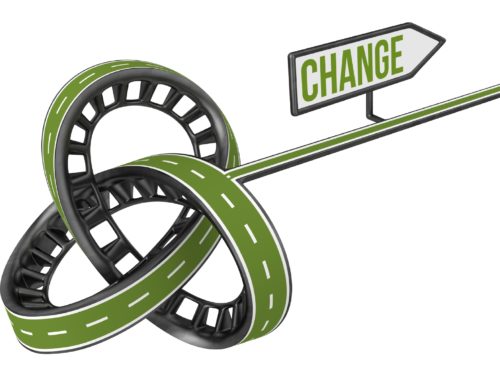My SHRM “Viewpoints” post about discipline in today’s workplace opened with this:
Progressive discipline, as practiced in most organizations, is legally defensible … and flawed in its logic. It is rooted in the decades-old mindset that treating people progressively worse will cause them to improve, or at least it will protect the organization from liability when they don’t.
Who knew that something so apparently obvious to me would generate such a diversity of responses and questions?
So … here are the four most frequent questions I’ve received about aligning the employee discipline process with the new realities of work.
- Isn’t this turning the “circus over to the fleas?”
Changing your approach to employee discipline, if effectively implemented, should strengthen accountability not make it worse. The main reason is that discipline will become something that you build in the organization rather than what you do to poor performers.
Elite teams in every area of endeavor (military, athletic, fine arts, or business) have a high degree of self-discipline. That doesn’t happen by accident. One NCAA Division I coach described it this way:
Student athletes that enter our program begin with imposed discipline. We check them into practice. We make sure that they wear the right equipment and do their training. We make sure that they go to class. Over time, imposed discipline becomes self-discipline. When that happens, discipline stops being something that we do to people and becomes something that is built in people.
Rather than abdicating responsibility and accountability, the supervisor and manager should be adding another useful tool to develop a self-disciplined team. If your leadership team abdicates its responsibility for accountability now, simply changing how you manage employee discipline is unlikely to make a difference.
- Why did you mean by “punishment doesn’t work?”
This question is also presented this way: “I was punished when I messed up, and it didn’t hurt me!”
Let’s look at what happens when people feel punished. There are a few who take it in stride and move on. They might even view the experience as so negative that they use it to create positive change.
My experience is that these individuals would respond to any consequence that causes them to see their performance and behavior through a different lens. It doesn’t have to be “punitive.” It just has to get their attention.
The parenting example of this is the child that dreads the look of disappointment from their parents much more than they would something tangible such as being grounded.
Those that don’t respond well to punishment tend to get by, get out, or get even. At worst, these employees become masters of malicious obedience or actively sabotage your efforts. More likely, their level of engagement drops to the point that they are doing just enough not to get in trouble.
The goal of the discipline process should be to work in alignment with your focus on employee engagement, coaching, and growth to improve productivity, performance, and professionalism. Those who will respond to (or not be alienated by) punishment will still respond. You also have a better chance at reaching those who will benefit from a different approach.
One last thought: Remember when you were punished as a 16-year old for sneaking out of the house to hang with your friends? Did you stop sneaking out, or did you simply get better at it? Do you want to take that chance with your organization?
- How can it meet the requirements of progressive discipline if you don’t punish people? Won’t this still be seen as negative?
Progressive discipline is built on the principle that the negative consequences of an individual’s performance or behavior should increase based on either the seriousness of the offense or her/his continued decision not to improve once the need to do so has been brought to their attention.
There is no requirement to take their money, impose punitive measures, or take action that is designed more to make you feel that you have taken your “pound of flesh.”
A disciplinary approach that works for today’s workplace will still have negative consequences. It will, however, be based on helping the individual return to and maintain acceptable performance levels.
There will still be some individuals who view any type of corrective action to be unwarranted and unfair. Never forget that you are creating a process for the majority of employees that do a good or great job every day not the very small percentage that are convinced that the entire world is conspiring against them.
Likewise, there are supervisors and managers that can make a $1,000 bonus feel like a prison sentence. This approach requires supervisors and managers to be more engaged in and committed to developing strong, trusting working relationships. Your expectations, education, and support for those in charge will have to increase.
- Won’t everyone line up to get a free day off if you do away with suspensions?
No. The Decision Making Day is used as a last resort, and my experience is that it is necessary less often than the traditional unpaid suspension or final warning.
The paid day off includes a clear expectation that performance or behavior issue that is serious enough to require formal action—even one that is in a different area of performance—will result in recommended discharge from the organization. It is approved by a senior organizational leader, and it has an active period that is set by policy to maintain consistency.
If your people don’t know an easier way to get a free day off than to put their job at risk, you have larger problems.
Most important, the paid Decision Making Day has a fundamentally different purpose than traditional Final Warnings and unpaid suspensions. You will now be asking people to think and commit to what they are going to do rather than go think about what they did.
When you treat people as responsible partners, you earn the right to expect them to act that way. There are over 50 questions that must be addressed to effectively bring your discipline process into the 21st century. Please contact us if you want to discuss your organization’s specific needs and questions.
Randy Pennington is an award-winning author, speaker, and leading authority on helping organizations achieve positive results in a world of accelerating change. He has over 30 years’ experience helping organizations implement performance management and discipline processes that align with and strengthen their culture. To bring Randy to your organization or event, visit www.penningtongroup.com , email info@penningtongroup.com, or call 972.980.9857.





